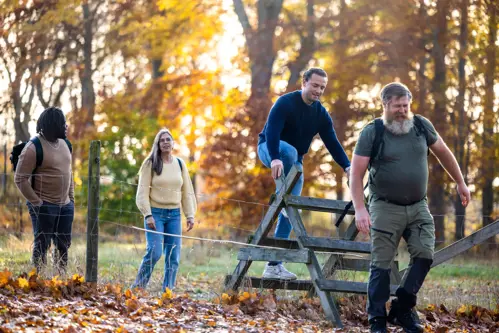13. Winters are cold and dark
It’s no secret that Sweden’s geographical location makes it prone to cold, dark winters. At the depth of winter in some northern parts of the country above the Arctic Circle, you might get as little as three hours of sunlight per day.
So, winters may be rough, but you’ll be rewarded during summer. Long hours of daylight and moderately warm temperatures make Sweden one of the most beautiful places to be in during May to August.
14. Be on time
It is common knowledge here that ‘time’ should be respected at all times, regardless of whether you’re going for an interview or a friendly fika. Meetings will start on time with or without you. The train leaves on time with or without you. Swedes value punctuality.
15. The state-owned alcohol monopoly
While you can purchase alcoholic drinks in restaurants and bars, if you’d like to take a sip from the bottle in the privacy of your own home, you’ve got only one legal option of buying stronger alcohol, and that’s from one of the roughly 400 state-run liquor stores (Systembolaget).
16. Keep that plastic bag
Since 2020, Sweden has a levy on plastic bags, currently at SEK 3 (Swedish crowns), which means most supermarkets will charge you SEK 6 or 7 per plastic shopping bag at the check-out counter. Needless to say, keeping a plastic bag and re-using it will save you money. You can obviously also bring your own carrier bag or opt for paper bags, which are cheaper.
17. Special days celebrating food
Sure, Swedes celebrate Christmas, Easter, Midsummer and Walpurgis Eve. But almost as important are the days celebrating foods: Shrove Tuesday (Fettisdagen), which in Sweden calls for a semla; Waffle Day (Våffeldagen) on 25 March; and Cinnamon Bun Day (Kanelbullens dag) on 4 October. Feel free to gorge on said food all day long without guilt.
18. It is safe to drink the water
Drinking tap water is the norm in Sweden. The water is clean and fresh, so you can save both money and the environment by not buying bottled water.
19. Business casual means jeans
General everyday fashion in Sweden is simple, relaxed and casual. This same concept has seamlessly seeped its way into more formal business settings. Unless your colleague is meeting foreign clients or attending a high stakes board meeting, chances are they are wearing jeans and a long-sleeved shirt.
20. Not all education and healthcare is free
The Swedish healthcare system is largely taxpayer-funded. For routine doctor’s office visits, the maximum amount you may have to pay during the course of 12 months is SEK 1,300.
Universities in Sweden are free for citizens of the EU/EEA or Switzerland. Since 2011, students from other countries are charged for studying at Swedish universities. The universities set their own fees, which vary between SEK 80,000 and 295,000 per academic year.
















